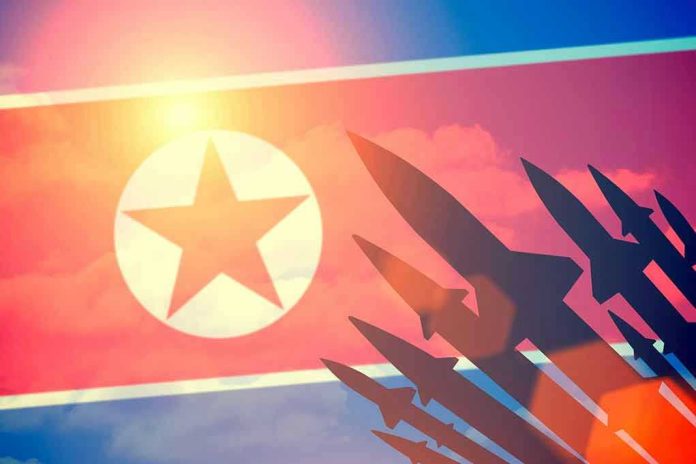
North Korea’s latest military threat against the U.S.–South Korea drills highlights ongoing dangers to American security and exposes the continued risk of unchecked adversaries undermining regional and constitutional stability.
Story Snapshot
- North Korea warned of “resolute counteraction” over the annual Ulchi Freedom Shield military drills, denouncing them as provocations.
- The 2025 drills were scaled back due to environmental factors, but Pyongyang continues to accuse the U.S. and South Korea of threatening regional security.
- North Korea’s rhetoric was less inflammatory than in previous years, suggesting shifting tactics as it deepens ties with Russia.
- Experts warn that even restrained threats from North Korea can escalate into missile tests, cyberattacks, or broader military demonstrations.
North Korea’s Threats Persist Despite U.S.–South Korea Drill Adjustments
On August 11, 2025, North Korea’s defense minister issued a public warning of “resolute counteraction” in response to the upcoming joint Ulchi Freedom Shield military exercises set for August 18–28. North Korea denounced the drills, even though about half the field events were postponed due to heatwaves and floods, accusing the exercises of being a direct military provocation and a threat to regional stability. These warnings, although delivered with less inflammatory language than in previous years, keep tensions high on the Korean Peninsula and challenge U.S. efforts to maintain stability in the Indo-Pacific.
For decades, North Korea has viewed annual U.S.–South Korea military exercises as rehearsal for invasion. Despite the 2025 drills being scaled back and reoriented toward cyber, kinetic, and nuclear response scenarios, North Korean leadership remains defiant. The regime’s history of responding to drills with missile launches and military provocations raises real concerns for American and allied forces in the region and highlights the persistent failure of diplomatic engagement to produce lasting security. This atmosphere of intimidation is compounded by North Korea’s increasing alignment with Russia, reinforcing the need for a strong U.S. deterrent presence.
Regional Security and Conservative Concerns
The continued threats from Pyongyang are not just regional posturing—they serve as a stark reminder of the threats facing U.S. allies and the constitutional duty to protect American interests abroad. The U.S.–South Korea alliance remains a cornerstone of deterrence, but the erosion of American strength under previous globalist policies has emboldened adversaries like North Korea. As the Trump administration works to restore robust defense postures, these exercises demonstrate a necessary commitment to readiness and the protection of freedom, in contrast to the appeasement and overspending that have left America vulnerable.
North Korea’s tactical restraint in its statement—less inflammatory language than in prior years—likely reflects shifting strategic calculations as it seeks diplomatic leverage and support from Russia. However, experts caution that “restraint” does not mean the threat is diminished. Pyongyang’s pattern has been to follow warnings with military demonstrations, such as recent mortar drills observed just days before the UFS exercise. This ongoing brinkmanship reinforces the importance of U.S. resolve and military preparedness, values that resonate with Americans who believe in a strong national defense and the constitutional right to protect the nation from foreign threats.
Broader Implications for U.S. Policy and Values
These developments underscore the risks of easing military vigilance or ceding ground to adversarial regimes. The partial scaling back of the UFS exercises due to environmental factors should not be misinterpreted as weakness. Instead, American policymakers must remain focused on deterrence, support for allies, and the defense of constitutional values abroad. The situation also highlights how leftist policies of appeasement, overspending, and globalist compromise embolden hostile powers, undermining both regional security and American credibility. For conservative Americans, the lesson is clear: a strong, constitutionally grounded defense posture remains essential to safeguarding liberty at home and abroad.
North Korea warns of ‘resolute counteraction’ over US-S. Korea drills https://t.co/3soCXErCBv
— Corporate Samachar (@SamacharS3551) August 11, 2025
Looking forward, vigilance is required not only on the Korean Peninsula but across all fronts where adversaries test American resolve. The alignment of North Korea and Russia, combined with persistent threats and potential for escalation, is a direct challenge to U.S. interests and those who value freedom and national sovereignty. By prioritizing readiness and standing firm against intimidation, the current administration signals that American security—and constitutional principles—remain non-negotiable.
Sources:
North vows ‘resolute counteraction posture’ to South-U.S. military drills
What’s behind North Korea’s ‘unusual’ reaction to US-South Korea drills?
US and South Korea combined exercise rankles the North
North Korea drills mortar units ahead of US-South Korea drills



